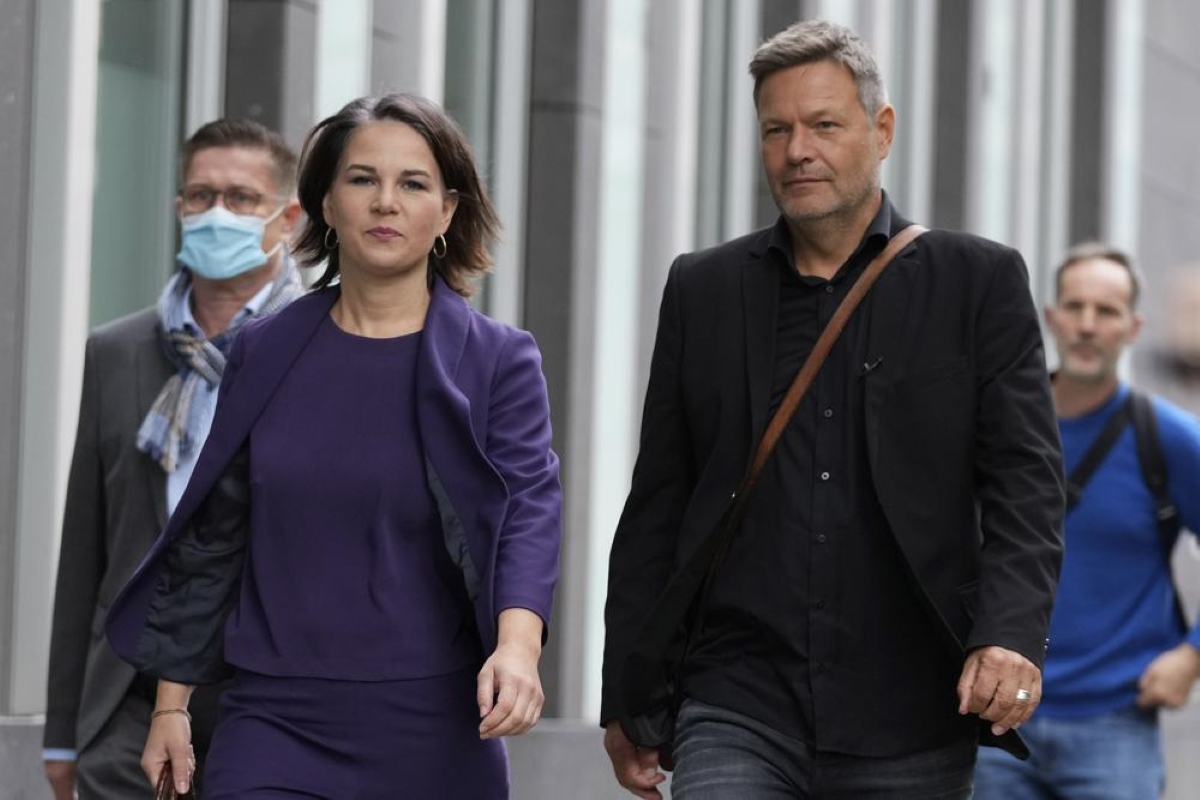The two parties that are expected to determine who will become Germany’s next chancellor have started talks to bridge their differences and declared that they got off to a good start.
Sunday’s parliamentary election left Germany’s traditional big parties effectively needing the support of the third- and fourth-placed parties, the environmentalist Greens and the business-friendly Free Democrats, to take the top job after outgoing Chancellor Angela Merkel’s 16-year reign.
Advertisement
The two smaller parties decided to talk to each other first before entertaining advances from bigger suitors. While they have some common ground, they have traditionally belonged to rival ideological camps and have different approaches to issues including the economy and fighting climate change.
In recent decades, the Greens have tended toward the center-left Social Democrats of narrow election winner Olaf Scholz. The Free Democrats have tended toward Merkel’s center-right Union bloc, which finished second under would-be successor Armin Laschet — its worst-ever result.
In identical Instagram posts early Wednesday, Green co-leader Annalena Baerbock and Free Democrat leader Christian Lindner posted a picture of themselves with Baerbock’s fellow Green leader Robert Habeck and the Free Democrats’ general secretary, Volker Wissing.
“In the search for a new government, we are sounding out common ground and bridges over things that divide us — and even finding some,” the posts read. “Exciting times.”
They didn’t say how or when they will proceed or give any other details. The Social Democrats have said they would like to start exploratory talks as early as this week.
The only other combination of parties that would have a majority in parliament is a repeat of the often bad-tempered outgoing “grand coalition” of the two big parties, which neither of them wants.
Merkel’s current coalition came about after the 2017 election when Lindner pulled the plug on talks on a possible alliance with the chancellor’s Union and the Greens.









